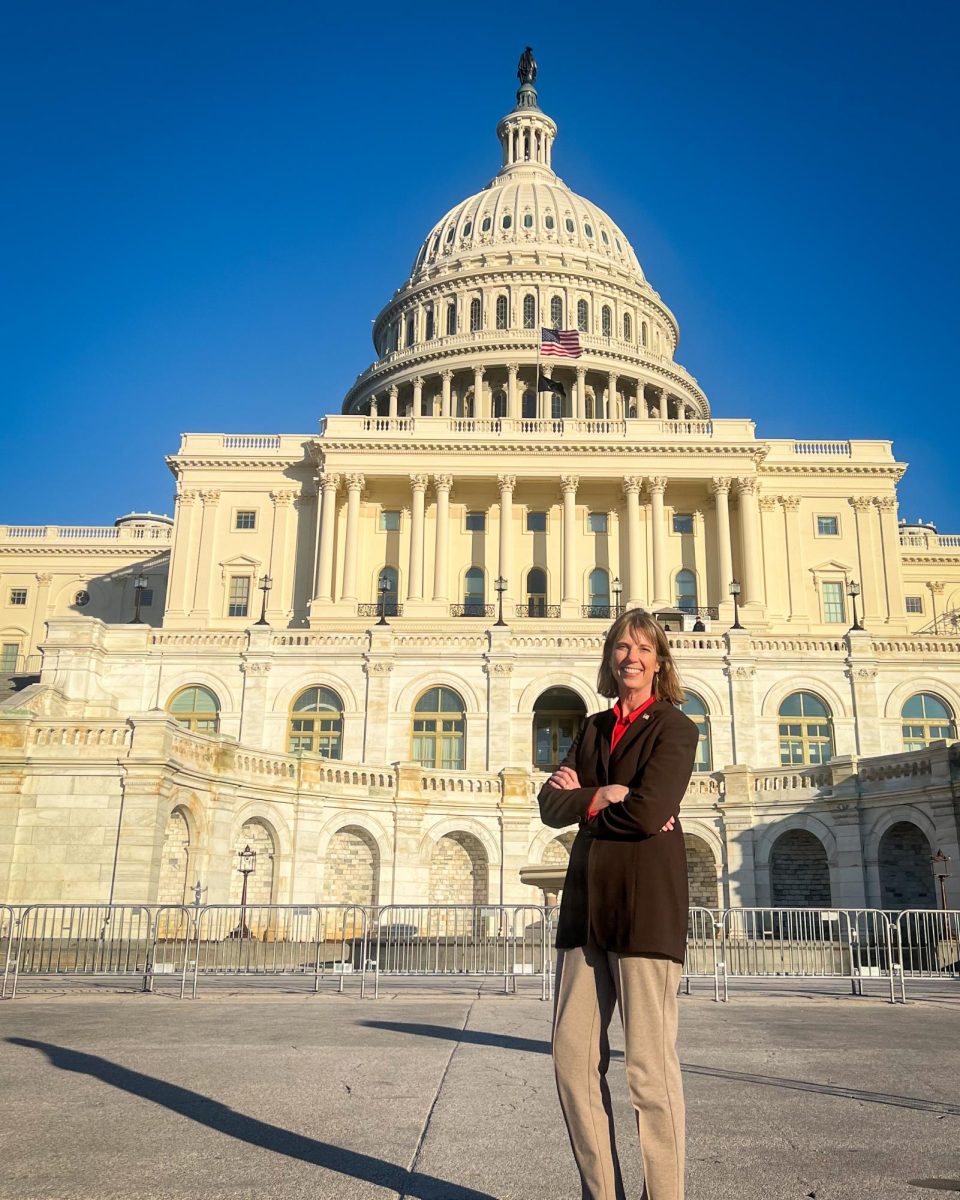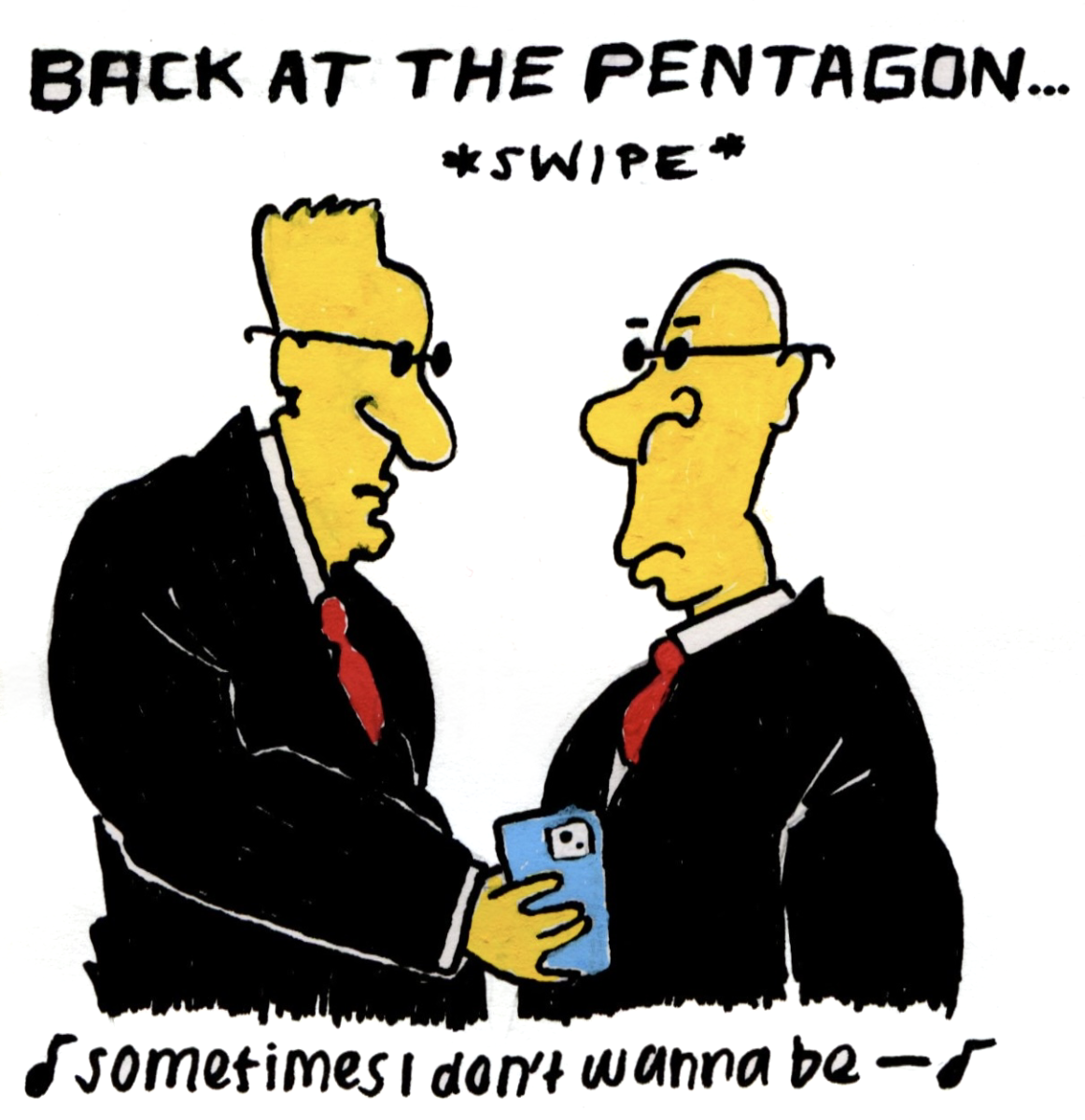by Caitlin Tortorici
Facebook: According to a Spring 2006 Student Monitor survey, it’s the most “in” thing on American college campuses along with beer and second only to the iPod.
So naturally, a great deal of controversy arose when students felt the site had breached their privacy with the addition of the News Feed and Mini News Feed features earlier this month.
On Tuesday, Sept. 5, Facebook users around the globe logged in to discover a strikingly different homepage. The formerly centered message alerts and birthday announcements had been cast to the right to make room for a new feature –– a constantly changing headline documenting the recent Facebook activities of a member’s friends. Such activities include profile updates, wall postings, plans to attend events and newly consummated online friendships.
Users’ personal profiles included a news feed of their own –– the Mini News Feed, which displayed a given member’s own recent actions on the site.
While students remained generally satisfied with the addition of “Facebook Notes,” a blogging feature, as well as the Global Network feature, a majority felt that the News Feed had crossed the line.
“It just gives me way too much information,” said sophomore Etasha Bhatt. “I’ll search for it if I want to know it.”
Facebookers felt most violated by the initial lack of privacy controls. Thousands of global groups were formed in protest, including the largest, “Students Against Facebook Newsfeed” which accumulated nearly 750,000 members.
On Sunday, Sept. 8, Facebook founder Mark Zuckerberg responded to the criticism by posting an apology on the homepage. Zuckerberg said, “I wanted to create an environment where people could share whatever information they wanted, but also have control over whom they shared that information with. Somehow we missed this point with [News Feed and Mini] Feed, and we didn’t build in the proper privacy controls right away. This was a big mistake on our part, and I’m sorry for it.”
With the apology came a new set of privacy controls. Students gained the ability to filter the information going into the News Feed by deleting certain actions within their Mini Feed.
With privacy restored, many students have come to appreciate the convenience of the new feature. “Like everyone else, I originally felt the News Feed was a huge breach of privacy,” said sophomore Elliott Okantey, who has only recently begun to weigh the benefits of the face-lift. “Now that you can control the things that people see, it’s kind of growing on me.”
Meanwhile, several students are less concerned about their friends seeing their online activities than the prospect of future employers scanning their profiles.
“I’ve heard Facebook is like an online resume,” said sophomore Kayla Cooper. “Employers can look at it just like [they do] MySpace.”
Such investigation would violate Facebook’s terms of agreement, which states that user information is available only for “non-commercial use.” Nevertheless, several instances in the past two years have proven Facebook to be less than private.
“All you need to log on to Facebook account is a college e-mail address. I’m sure all administrators all have them,” said sophomore Kellie Wutzke, who believes in keeping a low profile.
Sources document that it has become increasingly common for dry-campus colleges and universities to investigate alcohol policy violations via Facebook. In October of 2005, the Boston Globe documented a student at Fisher College who was expelled for stating on Facebook that a campus policeman “loves to antagonize students” and “needs to be eliminated.” In March of 2005, the secret service met with University of Oklahoma freshman Saul Martinez after he suggested on a Facebook group message board that the group should raise money to assassinate President Bush and replace him with a monkey.
As is documented on the school’s website, The University of New Mexico has gone so far as to block students with a UNM e-mail address from logging onto Facebook. High schools nationwide have also prohibited students from logging onto Facebook from school computers.
Students continue to fear for their privacy as Facebook plans to open its doors to all Internet users in the near future. This fear is made apparent in interest groups bearing names such as “The Day Facebook Becomes MySpace Is The Day I Delete My Account.”
Zuckerberg addresses these concerns on the Facebook’s current homepage, asking users where they stand on the issue: “Do you want to be completely invisible to people who aren’t in a college or a high school? Do you want to make sure they can’t message or poke you?”
Zuckerberg further points out that the website will continue to keep high school and college networks exclusive while including regional users. In any event, many would agree that the Internet is public domain.








